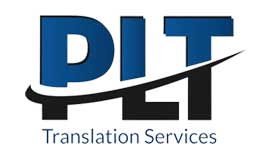In the United Arab Emirates (UAE), landlords may need to issue a legal notice for eviction or rent increase in compliance with the Federal Law of Rents. This process involves careful drafting, notarization by a Notary Public, proper service on the tenant, and legal translation of the notice, ensuring adherence to legal requirements and protecting the rights of both parties.
Definition and Legal Basis
A legal notice for eviction or rent increase is a formal communication issued by a landlord to a tenant, notifying them of the termination of the tenancy agreement or the intention to increase the rent. This action is governed by the UAE Federal Law of Rents (Law No. 26 of 2007), which outlines the rights and responsibilities of landlords and tenants regarding lease agreements.
How to Draft:
When drafting a legal notice for eviction or rent increase, it's essential to include specific details such as the names of the parties involved, the property address, the reason for the notice (eviction or rent increase), and the effective date of the action. The notice should be drafted in Arabic, the official language of the UAE, and may include an English translation for clarity.
How to Notarize by Notary Public:
Once drafted, the legal notice must be notarized by a Notary Public to authenticate its contents and ensure its legal validity. To do this, the landlord should present the notice along with valid identification documents to a licensed Notary Public, who will verify the signatures and stamp the document with an official seal.
How to Serve on the Tenant:
After notarization, the legal notice must be properly served on the tenant in accordance with the law. This can be done through various methods, including personal delivery, registered mail with acknowledgment of receipt, or publication in a local newspaper if the tenant cannot be located. Proper documentation of the service process should be maintained for legal purposes.
Legal Translation of Notice:
If the tenant does not understand Arabic, the legal notice should be translated into a language they comprehend. It's crucial to engage the services of a certified legal translator who is proficient in both Arabic and the target language to ensure accurate translation of the notice. The translated document should also be notarized for authenticity.
In the process of issuing a legal notice for eviction or rent increase in the UAE, Petra Legal Translation plays a critical role in the Legal Translation of Notice stage. If the tenant does not understand Arabic, it is essential to have the legal notice translated into a language they comprehend. Petra Legal Translation provides professional translation services, ensuring that the content of the notice is accurately translated while maintaining its legal significance.
Engaging the services of Petra Legal Translation guarantees access to certified legal translators who are proficient in both Arabic and the target language. These translators possess the necessary expertise to accurately convey the content and context of the legal notice, ensuring clear communication between the parties involved.
Moreover, Petra Legal Translation ensures that the translated document is notarized for authenticity. Notarization adds an extra layer of credibility to the translated notice, confirming its accuracy and legal validity. This step is essential to uphold the integrity of the legal process and ensure that the translated notice holds weight in legal proceedings.
By entrusting the Legal Translation of Notice to Petra Legal Translation, landlords can rest assured that their documents are in capable hands. Petra’s team of experienced translators ensures that the translated notice effectively conveys the intended message while complying with legal standards and requirements. This collaboration helps facilitate smooth communication between landlords and tenants, contributing to the successful resolution of legal matters related to eviction or rent increase.
In conclusion, issuing a legal notice for eviction or rent increase in the UAE requires careful attention to legal requirements and procedures. By following the proper steps for drafting, notarization, service on the tenant, and legal translation, landlords can effectively communicate their intentions while upholding the rights and obligations outlined in the Federal Law of Rents.




